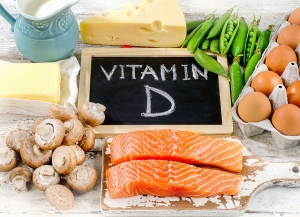Addressing Vitamin D Deficiency in Later Life?
Could sun dried mushrooms and tank-top shirts be keys to reducing vitamin D deficiencies in later life thus reducing fall risks? Well, yes and let’s discuss why. Vitamin D is often called the sunshine vitamin as it is made from cholesterol in skin and as the sun’s ultraviolet B (UVB) penetrate skin cells it causes production of vitamin D3. 1The dilemma for seniors is that older skin cannot synthesize vitamin D as efficiently while outside activities are often greatly reduced: and, while there are few foods that actually contain vitamin D, older seniors need more vitamin D, approximately 800 IU (international units) daily, as opposed to 600 IU daily for their younger counterparts. 2(According to the Institutes of Medicine, a serum 25 (OH) D level of 25 ng/ml is adequate for most populations while deficiency is defined as less than 20 ng/ml, with insufficiency being less than 30 ng/ml. Through a process called hydroxylation, the liver and kidneys turn stored vitamin D into an active form the body uses.)
Vitamin D Deficiency is Linked to Poorer Health
Because older adults are vulnerable to muscle weakness and falls, maintaining sufficient levels of vitamin D is important: there is evidence that sufficient vitamin D levels can strengthen bone and muscles in older adults which leads to reductions in falls3 – the primary benefit of vitamin D is to maintain serum calcium and phosphorus levels within normal ranges to support metabolic function, neuromuscular transmission, and bone mineralization.4 In fact, vitamin D deficiencies are linked to a multitude of health risks. For seniors in later life, vitamin D deficiency has been linked in studies to such conditions as cognitive decline, depression, osteoporosis, diabetes, cardiovascular disease, and cancer, although there is debate about the strength of the link. 5Vitamin deficient older adults living in areas prone to inadequate exposure to sunlight have increased risk of experiencing cognitive decline. 6Vitamin D deficient older adults may experience a loss of bone density which causes fractures and falls.7 Vitamin D deficient older adults may experience increases of risk factors for cardiovascular disease. 8Vitamin D deficient older adults may experience increases of risk factors for depression and other psychiatric conditions.9




